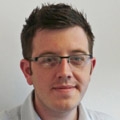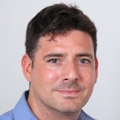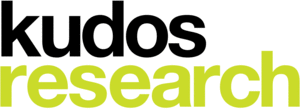How I sought out a career in research
Richard Noon
Research director
Ask Insight
When I was a youngster, I never knew what I wanted to be. I did some work experience in a pub kitchen and a newsagents before going to study business and information technology.
I knew I wanted to be in touch with people and to create solutions somehow for someone, but I had no idea what or where. My degree included a placement year at a management consultancy in Yorkshire, working directly with clients, predominantly in the public sector. Each project was a consultation – understanding the business problem or opportunity, creating a questionnaire and disseminating it with the result of being able to create a report with conclusions and recommendations. I loved it.
“I knew I wanted to be in touch with people and to create solutions somehow for someone, but I had no idea what or where”
After that I spent 21 months working at an IT consultancy offering a mail order fulfilment package. This was my first experience of direct mailing organisations. My interest in all things media (I’m a geek when it comes to Rajar and NRS figures) met with my first exposure to large datasets of customer information. Customer data was the lifeblood of every single one of the company’s clients.
This got me thinking. My personal feelings and perceptions of the data industry were somewhat tarnished – I received direct mailshots at timely moments offering me car insurance and phone calls offering me double glazing, kitchens and so on, which I didn’t appreciate. All this despite the fact that I never knowingly sign up to anything, never give my details out without consideration, and always untick the ‘Please send me lots of post’ box.
The single factor that prompted me to look into a career in market research was when I received an unsolicited email from a large panel provider. This made me look at the research industry in a new light. What quality procedures were in place in the industry to protect consumers, brands and organisations from anyone just ‘spamming’ consumers? What processes were in place in the industry to ensure the quality, transparency and integrity of what they did? My prior experience of management consultancy and technical IT consultancy seemed a perfect blend to enter the industry at a decent level and get to know it inside out.
That was why I sought out a job in the research industry. It was also a perfect role – working in one of the UK’s largest providers of consumer data, run by a knowledgable and ethical group of people.
It can be a strange industry to work in at first. I spent most of my time talking to European buyers of panel data – major client brands looking to innovate product and service offerings through intricate, timely and solid market research projects. I quickly learned that an analytical approach to thinking, understanding the rules under which the sector operates and, importantly, understanding a client’s requirements within their industry, rolled into a data-driven solution is a great ability – and one I am delivering daily in my current job.
For those who haven’t experienced another industry before entering the world of research, it can be harder to understand the practical day-to-day pressures of their clients, and can lead to naivety when making recommendations.
I still think there is a lack of innovation in the research sector, and this can be frustrating. But fundamentally, the business is about learning and standing on the shoulders of giants – using tried and tested tools and techniques which have been established for a reason. But that’s also why newcomers to the industry may find it frustrating. I would recommend that they stick with it and innovate where appropritate, once they understand the rules of engagement.
How I fell into research
Tim Barber
Research director
BDRC Continental
As a kid I had a variety of career aspirations. Depending on when you’d asked me, I wanted to be a spaceman, footballer, actor, journalist, playboy, stockbroker, movie director and work in advertising. Perhaps the most realistic of those options led me to getting a degree in advertising management, but by the time I graduated I had a vague notion of working in TV production. I wanted to start as a runner, then work my way up to TV producer, and possibly even work in front of the camera.
A university friend of mine had similar aims, and as such already had a year’s placement experience. He now lives in LA, working for Simon Cowell, whereas I’ve attended focus groups discussing fertiliser.
“Having a background and knowledge gained from outside what you do in your day-to-day work can enhance your understanding when communicating results”
As part of my plan to break into showbusiness, I was working for a company that licensed movies to cruise ships, hospitals, airlines – basically anywhere apart from cinemas. Toward the end of my temporary contract, I was talking to a colleague about my desire to work in TV, so she told me about her friend who ran a market research agency that specialised in media and TV research. They interviewed me (in a pub) and offered me a job. I thought, “This’ll tide me over for a few weeks while I look for my ideal job.” It didn’t take too long before I realised I had found my ideal job.
So what kept me in research? I loved the opportunity to deal with such a wide variety of subject matters, issues and challenges, and to have the chance to really get under the skin of different topics and understand them in depth. I’m naturally a curious person and love learning about new things.
The job brought together many disciplines – project management, data analysis, creative thinking, dealing with people and communicating ideas – and I quickly realised it was unlikely that many other jobs could offer me as good an opportunity to utilise and hone such a practical combination of skill sets, and also help slake my unquenchable thirst for knowledge. My role has constantly evolved, and because now at BDRC Continental I have the opportunity to use some innovative methodologies with a range of fascinating clients, it’s rarely boring.
As I hadn’t planned to make market research my career, I initially lacked commitment, assuming it was only temporary until my ideal job came along. But because I had few preconceptions about the industry, it was a good preparation for the challenges you face in the actual job, in that you often have to quickly learn a lot about a topic with which you are not familiar.
I do think the industry has an image problem, in that it isn’t perceived to be as glamorous as some of the other professions I had considered. This may put people off choosing it as a career, and is something that should be addressed. This may also explain why it seems that such a high proportion of people I meet in the industry fell into it, rather than it being a first-choice career. By far the majority of people I know in the industry don’t have degrees relating to market research.
Some might argue that when starting out, those that don’t have a research degree may be at a disadvantage to those that do. While this may be true initially, long-term I don’t think it provides much of a barrier. Starting off with a basic understanding of research methods and techniques and a grasp of statistics can certainly be of benefit, but the on-the-job experience and training courses available mean that it’s possible to catch up quickly.
If you have knowledge of (or an interest in) the areas that you’re going to be researching that is a definite advantage. And having a background and knowledge gained from outside what you do in your day-to-day work can enhance your understanding when communicating research results, which is especially beneficial now as providing insight and context to findings has never been more important.









0 Comments